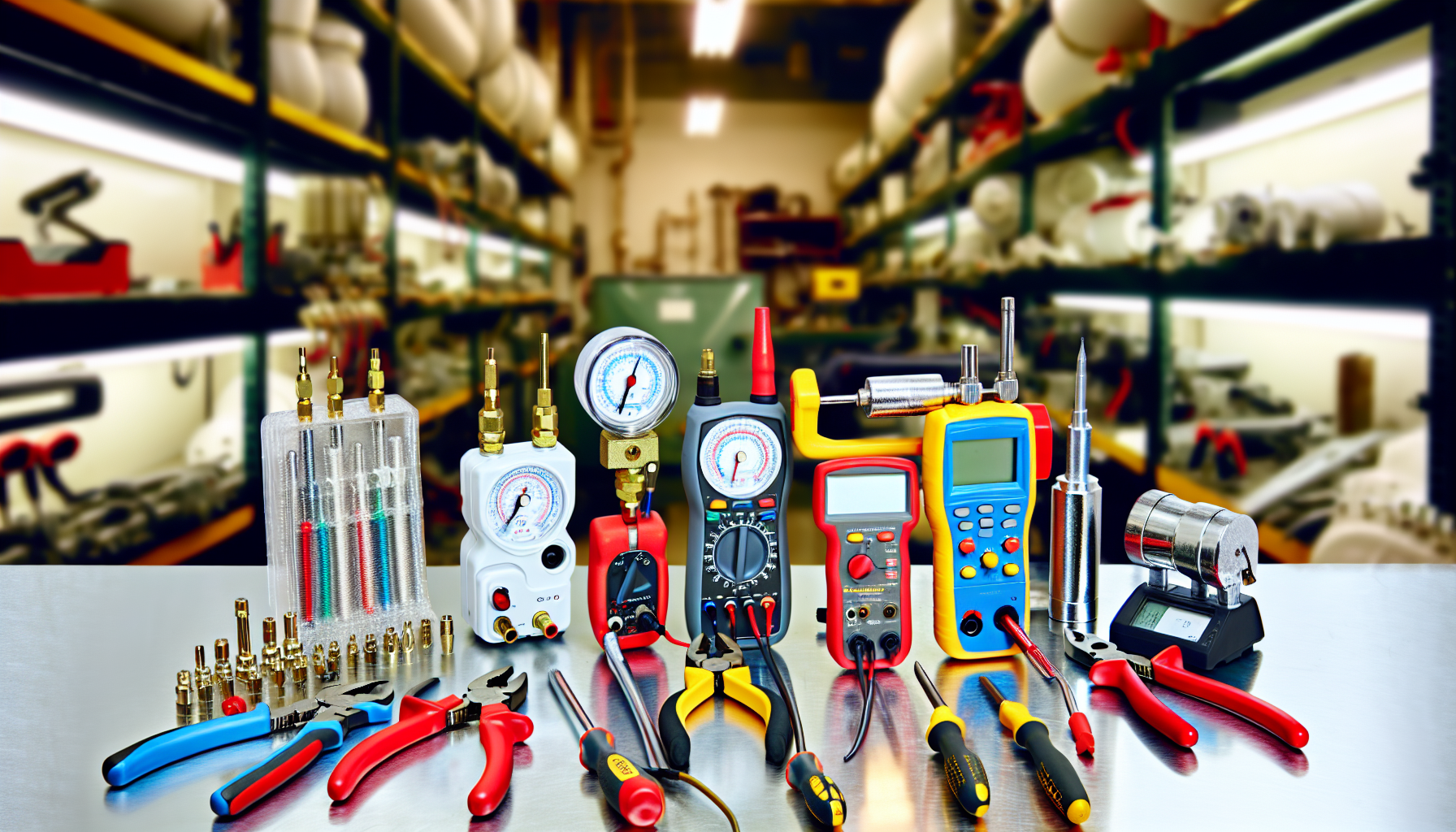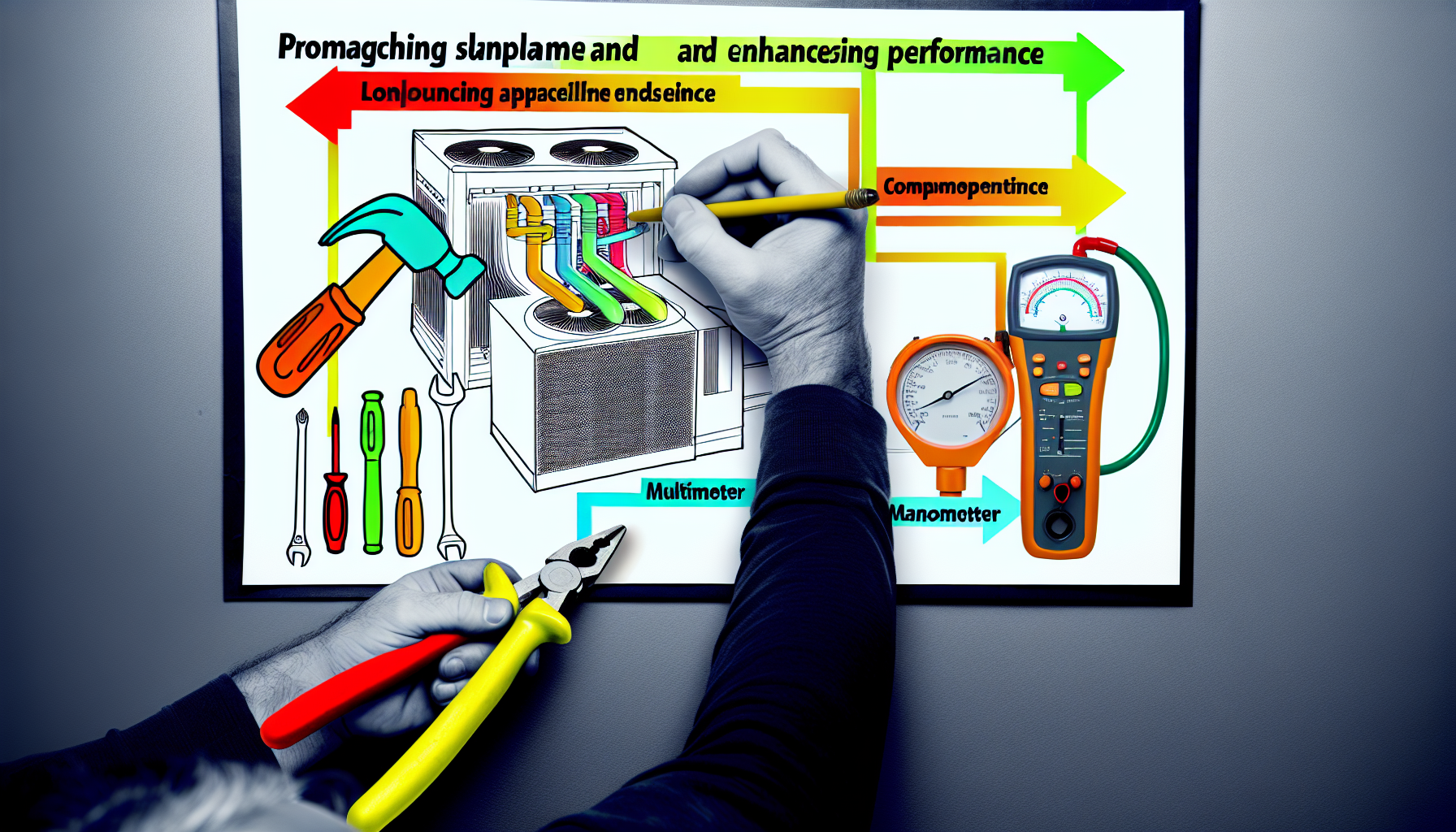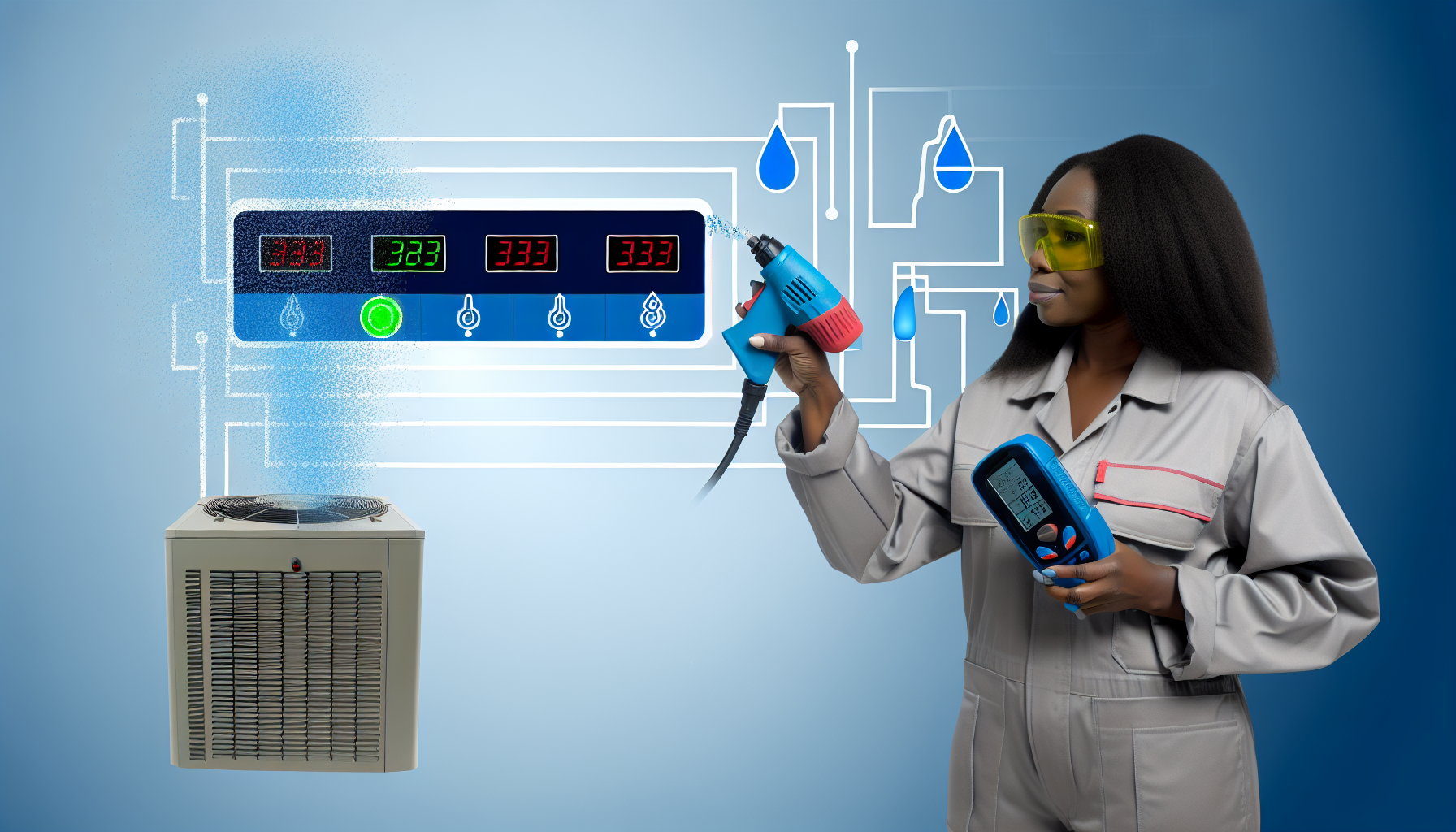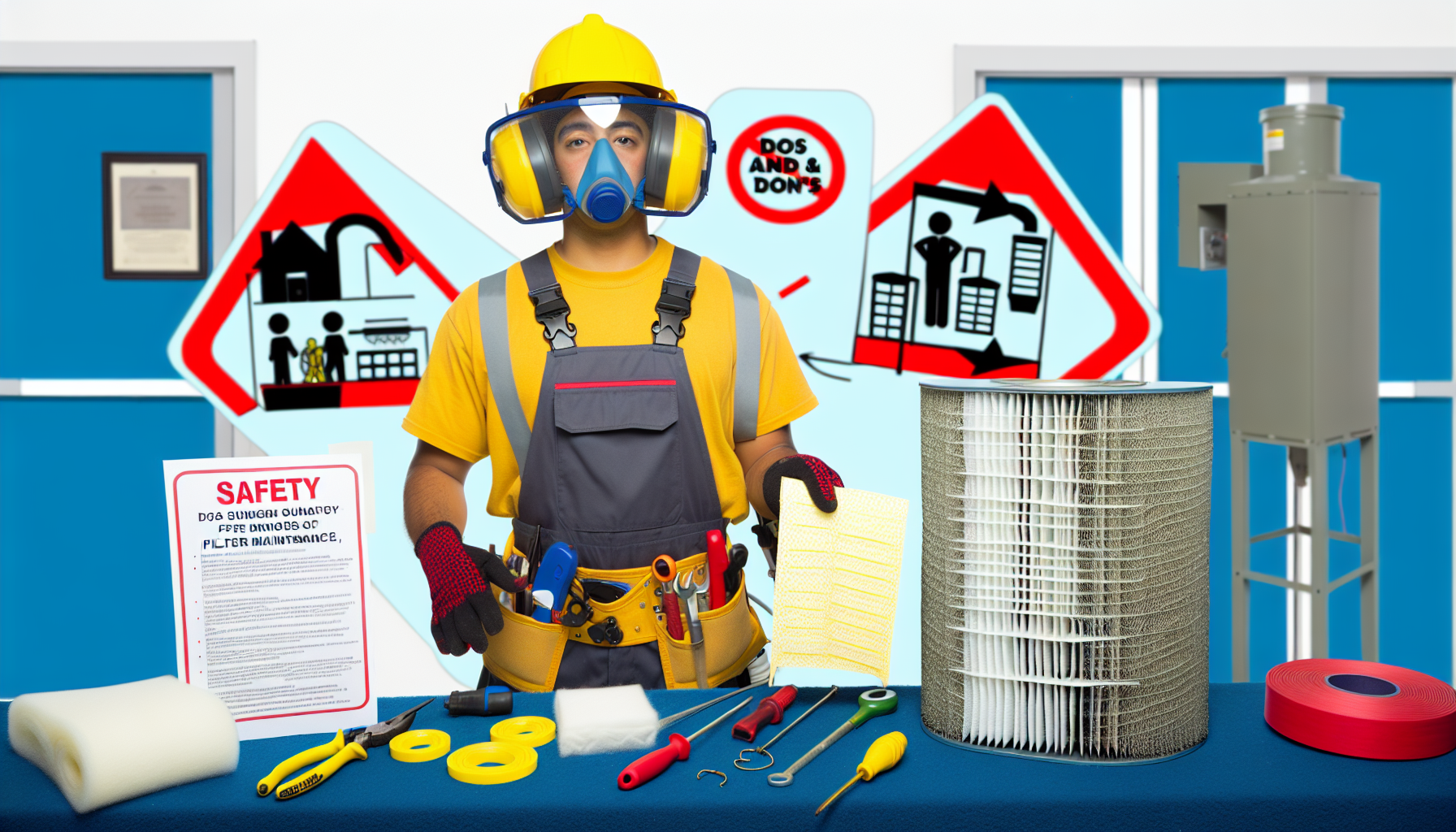Introduction
As an HVAC technician, having the right tools is crucial for successfully carrying out your job. Whether you are installing or repairing heating, ventilation, and air conditioning systems, having a set of must-have tools is essential. In this blog post, we will discuss the top tools every HVAC technician should have in their toolbox.
1. Multi-Meter
A multi-meter is an essential tool for HVAC technicians. It allows you to measure voltage, current, and resistance in electrical circuits. By using a multi-meter, you can diagnose and troubleshoot electrical problems in HVAC systems. It is crucial to invest in a good quality multi-meter that is accurate and reliable.
2. Refrigerant Leak Detector
Identifying refrigerant leaks is a common task for HVAC technicians. Using a refrigerant leak detector makes this job much easier. It helps you locate leaks in the refrigerant lines, coils, and other components of the system. This tool is especially important when working on air conditioning systems and ensures that the refrigerant charge is correct.
3. Pipe Cutters
Pipe cutters are essential for cutting copper, aluminum, and other types of pipes used in HVAC systems. They provide clean and precise cuts, making it easier to install and repair piping. Look for pipe cutters that are adjustable and can handle different pipe sizes.
4. Flaring Tool
A flaring tool is used to create flare fittings on copper pipes. Flare fittings are commonly used in HVAC systems for connecting pipes and other components. Having a flaring tool allows you to create strong and leak-free connections. Look for a flaring tool with multiple sizes to accommodate different pipe diameters.
5. Manifold Gauge Set
A manifold gauge set is a must-have tool for HVAC technicians working on refrigeration systems. It consists of pressure gauges, valves, and hoses that allow you to measure and control refrigerant pressure. This tool is essential for diagnosing refrigeration issues and ensuring optimal system performance.
6. Screwdrivers
Screwdrivers are basic tools that every HVAC technician needs. They are used for various tasks, including removing and tightening screws in equipment and control panels. It is recommended to have a set of screwdrivers with different sizes and types, such as flathead and Phillips head.
7. Adjustable Wrenches
Adjustable wrenches are handy tools for HVAC technicians. They are used for tightening and loosening nuts, bolts, and fittings in HVAC systems. Having a set of adjustable wrenches in different sizes will ensure that you can handle any situation.
8. Pipe Bender
If you work with copper pipes frequently, a pipe bender is an invaluable tool. It allows you to bend pipes easily and accurately, avoiding kinks and other deformities. Look for a pipe bender that is designed specifically for HVAC applications and can accommodate the pipe sizes you commonly work with.
9. Tubing Cutter
A tubing cutter is essential for cutting copper, aluminum, and other types of tubing used in HVAC systems. It provides clean and precise cuts, making it easier to install and repair tubing. Look for a tubing cutter that is easy to use and can handle different tube sizes.
10. Vacuum Pump
A vacuum pump is necessary for evacuating and dehydrating HVAC systems. It helps remove air and moisture from the system, ensuring proper operation and longevity. A high-quality vacuum pump will provide a deep vacuum and reduce the risk of contamination in the system.
Conclusion
Having the right tools is essential for HVAC technicians to carry out their job successfully. Investing in a set of must-have tools such as a multi-meter, refrigerant leak detector, pipe cutters, flaring tool, manifold gauge set, screwdrivers, adjustable wrenches, pipe bender, tubing cutter, and vacuum pump will make your work easier and more efficient. Remember to choose high-quality tools that are accurate, reliable, and designed specifically for HVAC applications. With these tools in your toolbox, you will be well-equipped to handle any HVAC installation or repair job that comes your way.














